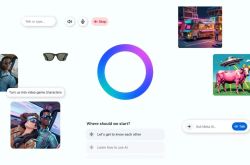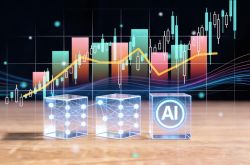Mobile Agents, Eliminating Apps?
![]() 07/03 2024
07/03 2024
![]() 515
515
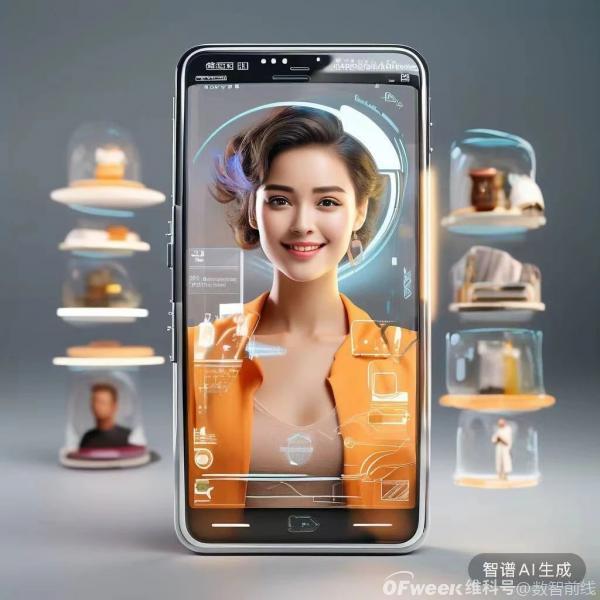
In the era of AI, mobile agents may become a new super entry point. How will the traditional mobile internet ecosystem change?
"I think you'll see a significant change in the short term. Whether it's mobile phones or the internet, we'll have fewer and fewer apps in the future, moving towards app-less. Since large models inherently possess ecological plugins and integration capabilities, we may not need so many apps in the future. When people need services, the large model can directly call some service interfaces." An AI veteran told数智前线at the beginning of the year.
In June, two leading mobile phone companies, Apple and Huawei, officially announced their AI strategies and actions at their respective developer conferences, indeed bringing about different changes to mobile phones. In the AI era, the interaction mode of mobile phones and the cooperation mode between mobile phone companies and apps are evolving.
01
Has a new super entry point emerged?
At the Apple Developer Conference held in June, "Apple Intelligence" was mentioned about 60 times. The strategy of "Apple Intelligence" is not to run AI as an additional feature or an independent chatbot, but to integrate AI into apps that users are already using. To achieve this strategy, Apple will integrate AI into its latest operating system and upgrade Siri.
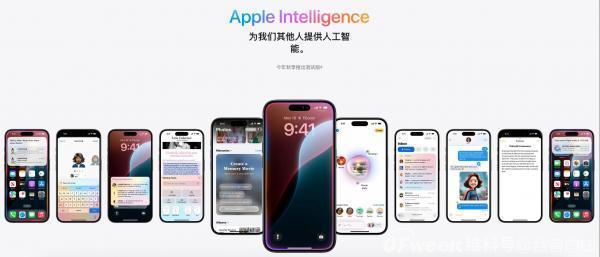
It's worth noting that when Siri was launched in 2011, it was defined as a "personal assistant," but over the years, its role has been quite awkward, with limited usable functions. It was only until it was integrated with GPT-4o that the "era of Siri" truly began.
Apple introduced that once all updates are implemented, Siri, with the user's permission, can access everything on Apple devices and work across apps. For example, if a meeting is rescheduled for the evening and you want to know if you can still catch your daughter's performance after the meeting. You ask Siri, and it will process relevant data, including meeting time, location, traffic conditions from the office to the performance venue, and provide suggestions.
In a discussion organized by Tencent Research Institute on "Apple Intelligence," Silicon Valley AI application entrepreneur Chen Ran believes that this upgrade of Siri has allowed more users to truly experience a smart assistant for the first time. "It connects many apps, which feels like magic to most users." However, these features will be available in the fall of this year, and some more complex features may not appear until 2025.
Following Apple, during the Huawei Developer Conference in June, Huawei also announced "Harmony Intelligence." Meanwhile, Huawei's Xiaoyi also underwent a significant upgrade, no longer serving as an AI voice assistant but a system-level agent, backed by the Pangu large model 5.0.
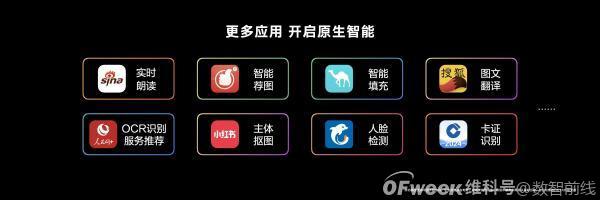
At the booth, people could directly experience Xiaoyi's capabilities. For example, if you tell Xiaoyi to compare two mobile phone products. Within seconds, it will output introductions to both phones, list a table comparing various parameters, and even through conversation, access the mall service and complete the purchase directly, forming a closed loop. Before the emergence of agents, we needed to search for a lot of content and form a comparison chart in our minds.
In this process, Xiaoyi understands the user's intent, can plan multi-step tasks, and execute them across multiple apps.
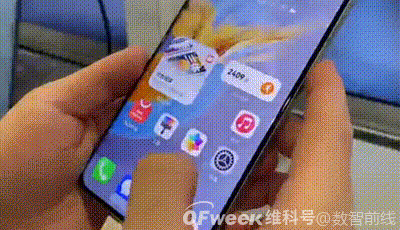
Some industry insiders summarized the differences between traditional smartphones and AI-era phones, though AI phones are still in their very early stages:
First, natural interaction has arrived. Interaction has become a natural way of conversation, images, videos, etc. Whether it's Apple's Siri, Huawei's Xiaoyi, OPPO's Xiaobu, vivo's Jovi, or Xiaomi's Xiaoai, as agents or personal assistants, in the future, they can listen, see, and deeply understand people's intentions.
Second, agents will help users with complex interactions between apps. "Under the traditional smartphone model, apps directly provide services to users through the smartphone platform, and most of the fees and traffic paid by users go to the app. The phone can only obtain some pre-installation and usage distribution fees from apps," Guo Tianxiang, research manager at IDC China, told数智前线. "In the AI era, smartphones (agents) directly serve end users, and apps provide services to smartphones, increasing the importance of phones, and users' traffic flows directly to phones."
Third, apps will be decomposed into smaller services. "Apps are exhibiting an atomic trend," said Hu Yanping, chief expert at FutureLabs. A Huawei engineer told数智前线 that app developers have begun to transform into microservices. These atomic services will be orchestrated and combined by agents to achieve intelligent coupling based on users' needs.
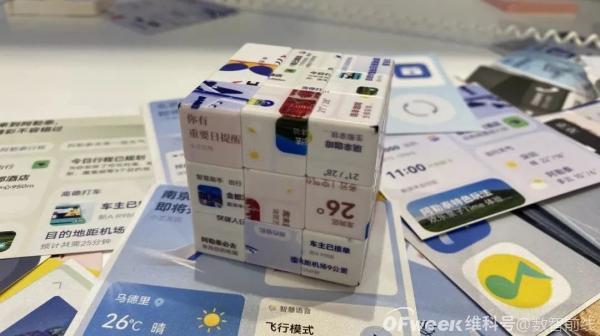
Under such changes, mobile agents or personal assistants have become a new ecological entry point. For a long time to come, perhaps many apps will gradually access Siri, Xiaoyi, and other agents, competing for this interface and relying on these agents' routing and distribution.
"You can understand mobile agents as a special type of app, a system-level app, with both third-party apps and mobile agents running on the mobile system. Third-party apps provide services to the system, and mobile agents access them from the system. There may be no need to download apps on phones anymore."
"The process of realizing AI phones is a process of eliminating apps. In the future, phones may not need any apps at all," said IDC's Guo Tianxiang.
This trend has already occurred. During the Huawei HDC conference, a large number of app companies visited the mobile native intelligence exhibition area. The core of their discussions was "how can we get the system or Xiaoyi to access us more?"
02
How will various apps be affected?
The emergence of agents has brought about new trends in mobile app traffic distribution. "We've done some research in this area," a mobile phone R&D engineer told数智前线.
They found that top content apps "don't need to worry." For example, Douyin, Weibo, and Xiaohongshu, browsing content on agents is not as convenient or effective as directly opening the app, as the content is more concentrated and easier to browse.
Some large tool apps will be affected in both positive and negative ways. On the one hand, for functions like topping up phone credit, if mobile agents can provide faster services, users will reduce the use of related apps. "Therefore, these app developers need to seek transformation. For example, dismantle themselves into atomic services, equivalent to lightweight mini-programs, convenient for system calls."
On the other hand, many deeply buried functions in these tool apps, like long-tail mini-programs, are unknown to most users. Accessing agents gives these mini-programs shallower entry points, gaining more distribution and traffic.
For a large number of mid-to-low-tier apps with relatively small traffic, there are two scenarios: one is if they have useful functions, such as some photo editing software, though niche, they have unique features. After opening their service capabilities to the system, the system will match and call them based on user intent. "These developers are actively embracing agents." The other type of long-tail apps, without much uniqueness, will be eliminated.
Regarding such surveys, app developers have different responses. A senior developer from a top app told数智前线 that the mobile agent entry point is not decisive. He cited payments and navigation as examples, "There are many payment options, but why are WeChat Pay and Alipay the strongest? It may still be user experience, and user habits formed over many years in the market are the hardest to change; for navigation, Baidu and Gaode are basically the market leaders. It's not realistic for agents to change the market landscape in the short term."
Another industry veteran observed that a large number of app companies are adopting various strategies on agents. Some capable apps have already integrated into various large models and created agents, such as Feishu launching Feishu Smart Assistant last year. Another type of app creates its own agent while also cooperating with mobile agents, such as Alipay. Which service users prefer remains to be seen. However, for most small and medium-sized apps with limited capabilities, they are willing to leverage mobile agent capabilities to achieve their own transformation, avoiding complete loss of usage scenarios in competition with large companies.
Qu Zhangcai, the founder of Xichuangzhu, told数智前线 that Xichuangzhu is an ancient poetry app. In the future, the Xichuangzhu app itself may integrate into large models to create agent scenarios. "For example, turning all literary authors into agents, users can directly talk to Du Fu or compose poetry with Li Bai." They also plan to access Huawei's Xiaoyi agent and ByteDance's Doubao agent ecosystem. The former targets Huawei's HarmonyOS, while the latter aims for the Android phone ecosystem.
Qu Zhangcai believes that mobile agents will not replace apps. "Specific functions still need to be accessed through third-party apps. Agents just make access more convenient." After all, various apps have a lot of data and scenarios behind them, which agents cannot fully cover.
Currently, some apps are adopting a proactive strategy. For example, Tongcheng Travel, Xiaohongshu, and other early adopters of Xiaoyi agents have developed atomic services. In user travel scenarios, Huawei's Xiaoyi agent will call Tongcheng Travel for booking services and Xiaohongshu for attraction recommendations. Xiaohongshu has also developed some new user interaction forms, such as generating similar text for users while they browse or translating a paragraph of text.
03
New Relationships
There is an interesting and crucial issue between mobile agents and apps, which is data. This is also an issue that traditional smartphones and app companies rarely involve.
"Apple has powerful user data, such as screens, calendars, emails, photos, etc., which is very valuable for machine learning," said Silicon Valley AI application entrepreneur Chen Ran. "If these apps want to further develop, they must access these sensitive information. What I'm concerned about is how Apple controls and provides these sensitive information within its privacy framework."
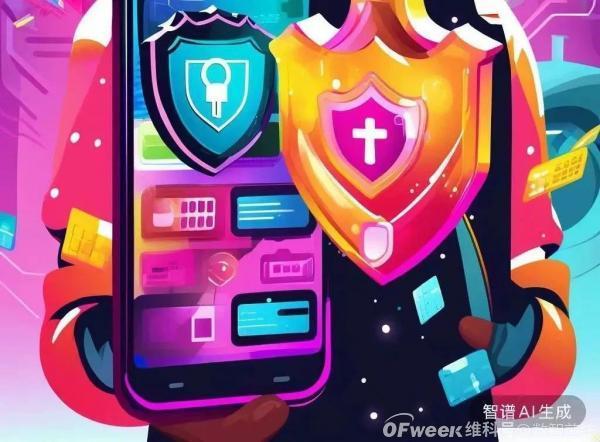
Apart from how mobile phones open some data to the ecosystem, app companies also seem to need to provide some data to mobile phones within a privacy framework to enable agents to better access them.
Currently, whether mobile agents call or don't call a particular app may be based on several factors. "It can be combined with user behavior data," said a mobile agent engineer. For example, if a user is in a certain business district and is accustomed to using Meituan, the mobile agent will call Meituan to provide food recommendation services. Of course, agents also have commercial cooperation. "It's similar to some payment tools recommended at the bottom of apps, always with first, second, and folded options," said an app developer.
If it depends on user behavior or habits, it may be more humanized. The user behavior data here may be obtained by the agent from the system or shared by third-party apps.
A mobile agent engineer gave数智前线an example. If there are two music playback software, one with many users but does not effectively communicate user behavior data to the system after integrating with mobile agents; and another with fewer users but shares more user behavior data. "From the system's perspective, the former is not intelligent enough, and the latter may have a higher probability of being recommended."
"This is just an ideal state," said another mobile phone product manager. Many apps cannot provide data to mobile phone companies. For example, e-commerce apps' core data is user profiling, which involves user privacy and is a commercial asset and core competitiveness of e-commerce companies, "they definitely can't give it to us."
"In this case, we provide comprehensive and basic user profiling through the mobile phone system, which can be accessed by agents," said the above person.
"From an ecological perspective, when mobile phones were feature phones, hardware and system software were bundled, and the system software contained all the key functions, but they were limited to calls and text messages. When smartphones emerged, two significant signs were that interaction became touch-based and more freedom, and apps emerged," said Zhang Jun, Product Director of OPPO AI Center, in a discussion about AI phones earlier this year. "In the AI phone era, it has the ability to self-learn based on user needs and personalization, which means that its interaction mode with users will undergo profound changes. It may proactively place what you need in front of you for you to make decisions."
Zhang Jun believes that under such an interactive experience model, the service ecosystem behind it will definitely change. These services must be native, still provided by third parties but embedded behind the mobile phone system, which can access them. At the same time, it may break some service silos and integrate different services in the same user scenario. Zhang Jun said that OPPO has already begun some exploration, but there is still a long way to go.
Hu Yanping believes that in the next stage, there may be issues such as strong head effects, which may cause some apps to acquire a large amount of traffic and users from entry points, while others may be marginalized. In this case, there may be conflicts of interest. These conflicts may also intersect with user data privacy protection and some competition-related issues.
Therefore, mobile phone companies may need to consider how to form a new ecological order and new relationships with developers and apps, a process that may be slower than the emergence of super entry points.

